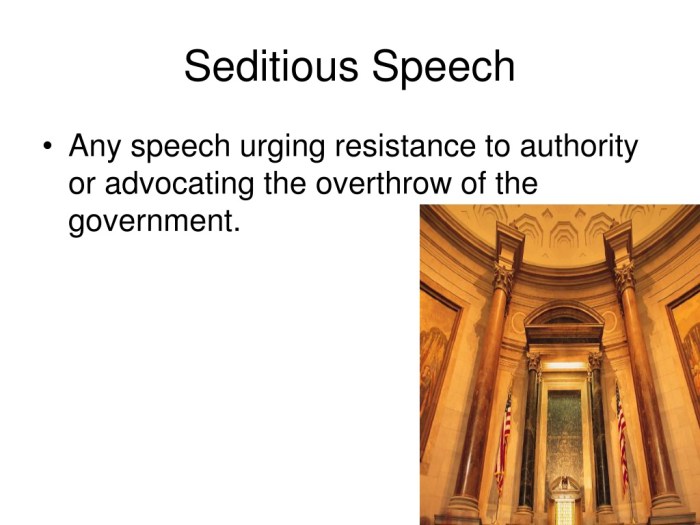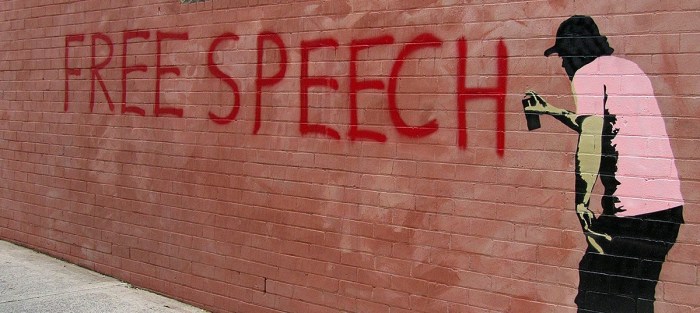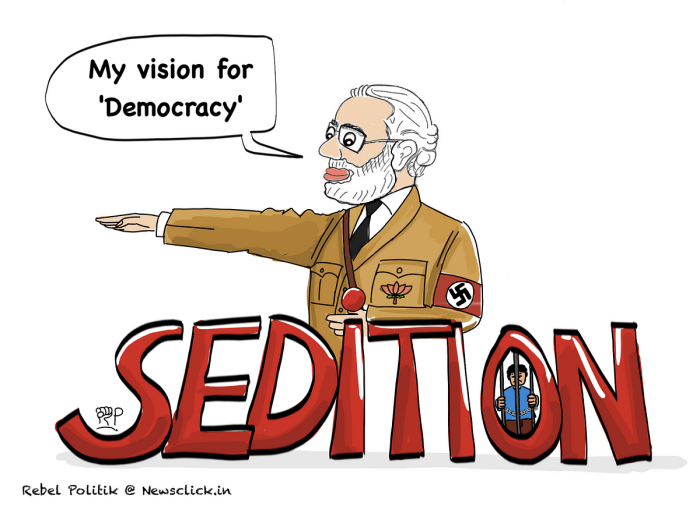Seditious speech is speech that urges others to, inciting them to engage in unlawful or rebellious acts against the government. Throughout history, seditious speech has been a contentious issue, with varying interpretations and consequences. This article delves into the legal definitions, elements, and impact of seditious speech, examining its relationship with free speech and the challenges posed by the digital age.
Historical Contexts

Seditious speech has a long and complex history, dating back to ancient times. In the Roman Republic, for example, the crime of maiestas (treason) included any speech or action that could be seen as undermining the authority of the state.
In England, the common law crime of sedition developed in the 16th century, and it was used to prosecute individuals who spoke out against the government or the established order.
The definition of seditious speech has evolved over time, but it generally refers to speech that is intended to incite hatred or violence against the government or its institutions. In some cases, seditious speech may also be considered a form of terrorism.
Consequences of Seditious Speech
- Imprisonment
- Fines
- Loss of citizenship
- Deportation
Impact of Seditious Speech Laws on Freedom of Expression
Seditious speech laws can have a significant impact on freedom of expression. In some cases, these laws may be used to silence dissent and prevent people from expressing their political views. However, it is important to note that seditious speech is not protected by the First Amendment.
The Supreme Court has held that the government has a legitimate interest in preventing speech that is likely to incite imminent lawless action.
Legal Definitions and Interpretations

The legal definition of seditious speech varies from jurisdiction to jurisdiction. In the United States, seditious speech is defined as “speech that incites imminent lawless action.” This definition is based on the Supreme Court’s decision in Brandenburg v. Ohio (1969). In Brandenburg, the Court held that the government may not prohibit speech that is merely intended to incite violence, but it may prohibit speech that is likely to incite imminent lawless action.
The definition of seditious speech has been interpreted differently by different courts and legal scholars. Some courts have taken a narrow view of seditious speech, while others have taken a broader view. The Supreme Court has not yet definitively ruled on the scope of the seditious speech exception to the First Amendment.
Essential Elements of Seditious Speech
- Intent to incite imminent lawless action
- Likelihood that the speech will incite imminent lawless action
Relationship to Other Forms of Protected Speech
Seditious speech is not protected by the First Amendment. However, other forms of speech, such as political speech and dissent, are protected. The Supreme Court has held that the government may not prohibit speech that is merely critical of the government or its policies.
Consequences and Penalties
The consequences of engaging in seditious speech can be severe. In the United States, seditious speech is a felony offense that is punishable by up to 20 years in prison. In addition, individuals who are convicted of seditious speech may also be fined or deported.
Impact on Individuals, Groups, and Society
Seditious speech can have a significant impact on individuals, groups, and society as a whole. Seditious speech can lead to violence, social unrest, and even war. In addition, seditious speech can also damage the reputation of individuals and groups, and it can make it difficult for people to have open and honest discussions about important issues.
Free Speech and Seditious Speech

The tension between the right to free speech and the need to prevent seditious speech is a complex one. The Supreme Court has held that the government has a legitimate interest in preventing speech that is likely to incite imminent lawless action.
However, the Court has also held that the government may not prohibit speech that is merely critical of the government or its policies.
Role of the First Amendment
The First Amendment to the United States Constitution protects freedom of speech. However, the First Amendment does not protect speech that is likely to incite imminent lawless action. This means that the government may prohibit seditious speech that is likely to cause violence or other harmful consequences.
Limitations on First Amendment Protection, Seditious speech is speech that urges others to
There are a number of limitations on the First Amendment’s protection of free speech. These limitations include:
- Speech that is likely to incite imminent lawless action
- Speech that is obscene
- Speech that is defamatory
- Speech that is child pornography
Seditious Speech in the Digital Age

The rise of social media and the internet has made it easier than ever for people to share their thoughts and ideas with others. However, this has also made it easier for people to spread seditious speech.
Social media platforms have been criticized for not doing enough to prevent the spread of seditious speech. In some cases, social media platforms have been used to spread propaganda and recruit new members for terrorist organizations.
Challenges in Regulating Seditious Speech in the Digital Age
There are a number of challenges in regulating seditious speech in the digital age. One challenge is that it can be difficult to identify seditious speech, especially when it is shared on social media platforms. Another challenge is that seditious speech can spread quickly and easily online, making it difficult to contain.
Potential for Online Extremism
The spread of seditious speech online has the potential to lead to online extremism. Online extremism is the use of the internet to promote violence or other harmful activities. Online extremism can be a serious threat to national security, and it can also lead to real-world violence.
FAQ Explained: Seditious Speech Is Speech That Urges Others To
What are the essential elements of seditious speech?
Intent to incite imminent lawless action, a likelihood that the speech will incite such action, and a clear and present danger to society.
How does seditious speech differ from political speech?
Seditious speech specifically aims to incite unlawful or rebellious action, while political speech generally expresses opinions or advocates for policy changes.
What are the potential consequences of engaging in seditious speech?
Imprisonment, fines, and restrictions on future speech and association.